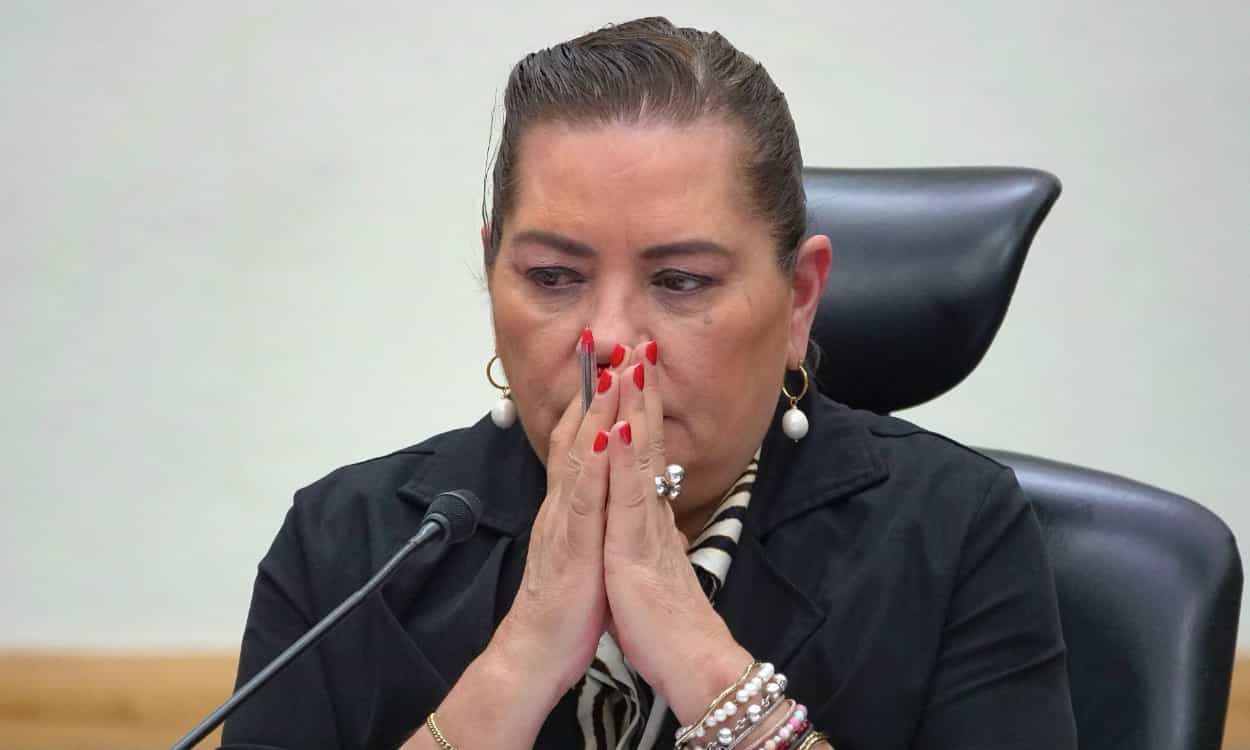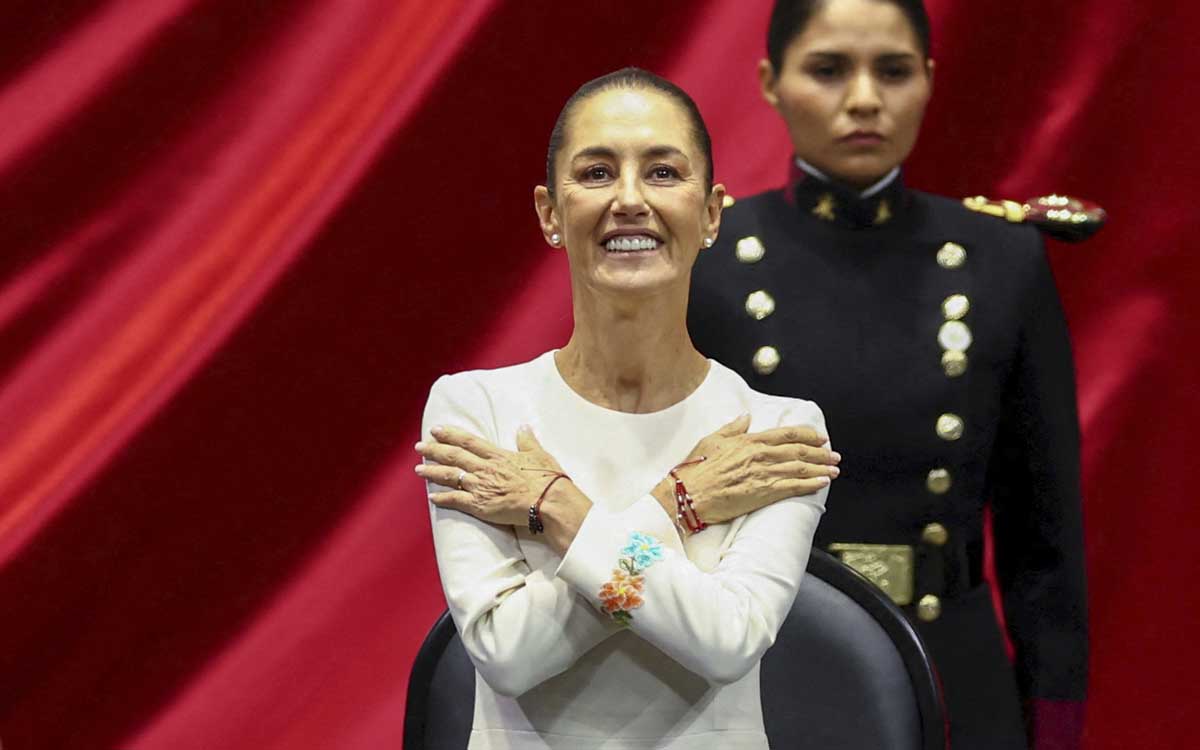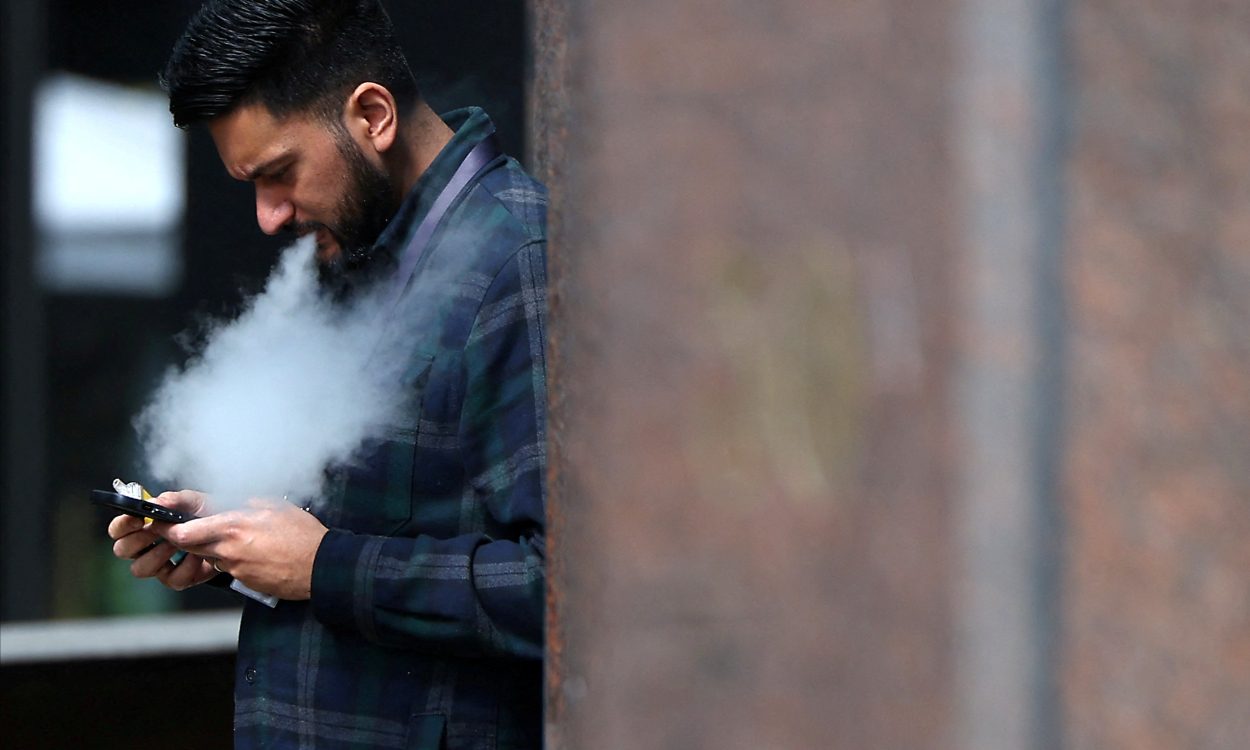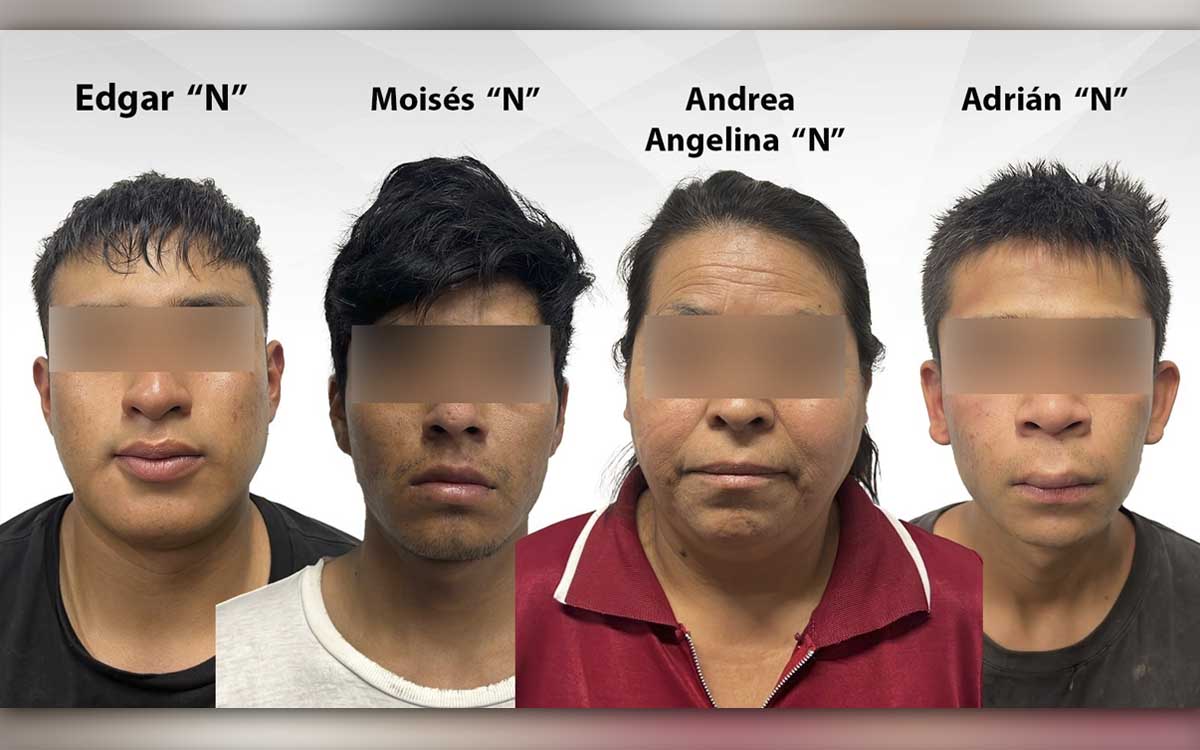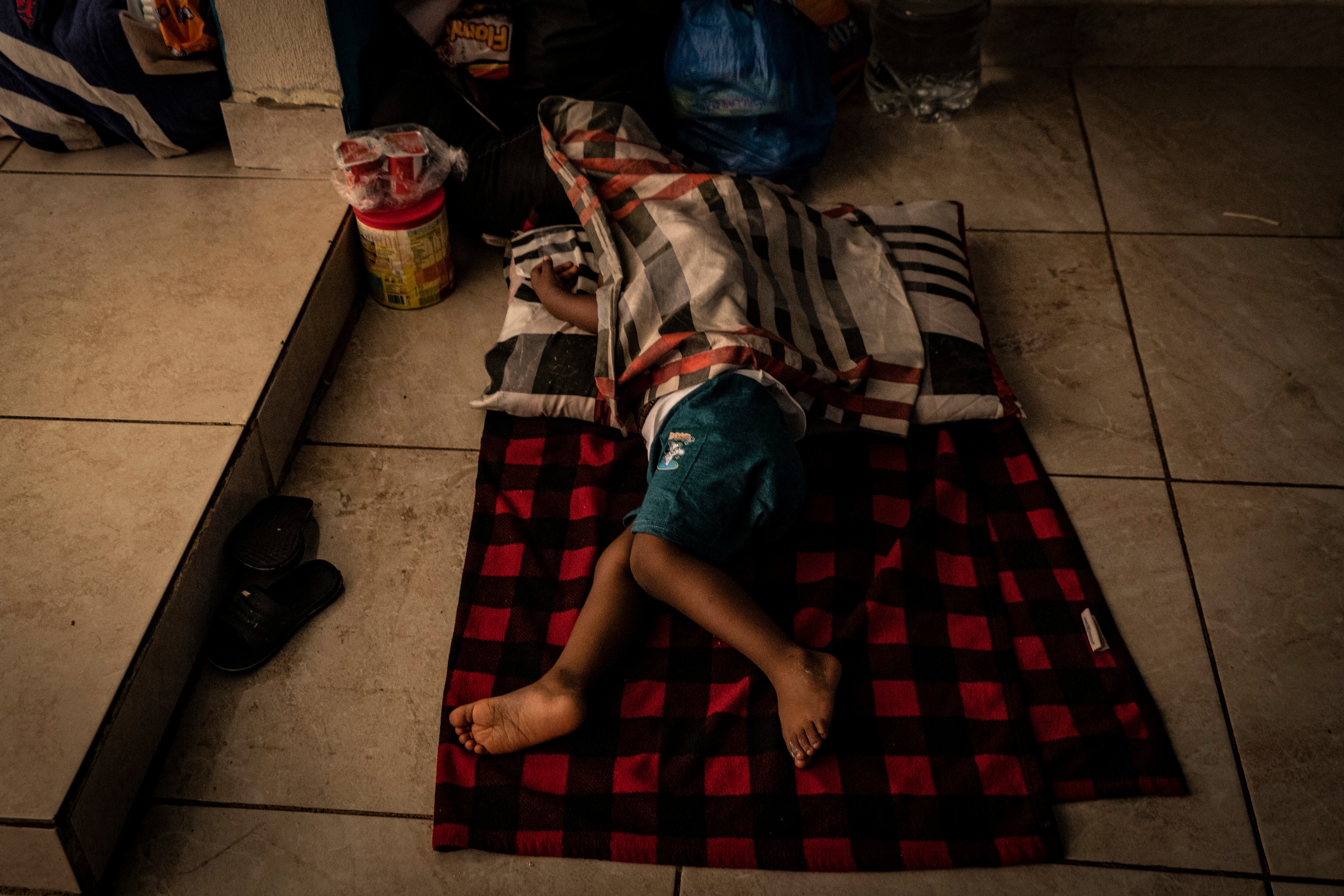
Eva Clemente was born in Cuba Libre, a town of just over 700 inhabitants where “women are not free.” Those aren’t my words, they’re hers. Clemente’s father sold her for food when she was 12 years old to another family from the municipality of Xalpatlahuac, in the Mexican state of Guerrero. She was only allowed to return home on the day her father died, after getting permission to attend his funeral. Now, in a room in her new apartment in the Bronx, the only photo that hangs on the wall is that of her dad, an older man in a sombrero and plaid shirt who Clemente says she understands, despite everything.“My father wanted to find me a place for when he was no longer around,” she says. “He wanted to leave me in good hands. But that’s not what happened, he left me in the hands of worthless people. People who made my life miserable from the ages of 12 to 26.”That’s why the day her mother-in-law called New York from Mexico and told her that she was going to sell her 14-year-old daughter, Clemente planned the girl’s escape, along with that of her five-year-old son, who Clemente had left in the care of their grandmother the day she departed for the United States. In Ñuu Savi, the “town of rain,” paternal families had the power to decide the fate of their women. “I was a servant in their home. I was not the daughter-in-law,” she says.Sixteen years later, Clemente remembers the sharp sensation of the chile de árbol on the day her father sold her. They gave her a handful to grind as a test, an examination, a confirmation of the fact that she would be a good woman for their children. “It is very difficult to grind chile de árbol, because it is so spicy,” she says. “I had to hide so that I didn’t cry in front of the lady.”No one saw Clemente cry from the heat, and so she moved to her new family’s house. After a time, she got together with one of their sons, who was two years older than her. Then she got pregnant. “We thought that things were going to go so well, but that wasn’t the case,” she says. “The father of my daughter came to the United States, he left me pregnant. I waited for him. I respected my relationship.”Her partner returned nine years later, after living in New York while Clemente had stayed under the command of her mother-in-law, who flung the pots on the floor if the food burned and did not allow her to visit her parents’ home. One day, when Clemente was in the kitchen, she heard her little girl cry out.“Her father was striking her with a cable,” she recalls. “I didn’t like that. I went to defend my daughter. She was 10 years old. I took my daughter out of his hands, I told him not to hit her. Hit me if you want, but don’t mess with her. Then her grandmother arrived and she told me not to get involved, that she was his daughter. I realized that nothing was going to work with him.”One morning, her mother-in-law asked her to prepare tortillas for a journey. Clemente asked her who was going on a trip. Her mother-in-law told her that her son was heading back to New York. Clemente was pregnant for the second time. “He never told me or warned me that he would leave, that he was going. He said he was leaving because he didn’t have any money. I told him that money comes and goes, that even if we have to eat tortillas with salt, family is the most important thing. But that, if he wanted to go, he must not be used to being at home anymore. I told him: it’s fine, go for it.”When Clemente’s youngest child was two years old, her partner ordered her to come to New York. And so, Clemente embarked on the journey, like so many before her, after spending nights crying. Her daughter told her, “Mama, don’t go, what’s going to happen to us? Don’t go.”Clemente got to New York in 2021. It was the first big city she’d ever visited. She lived in an apartment in the Bronx, where she shared the rent with another woman who was also in a relationship with her partner. Three times, in the apartment, Clemente saw them together. “At first, it made me feel bad. I was sad, disappointed. I cried. It was incredibly hard,” she says. “One day I said, that’s it for us. He didn’t like that.”One night, her partner arrived home drunk and beat her until she lost consciousness. She missed a week of work as a cleaner for a Jewish family in Brooklyn. “He left too many marks, my face was swollen, he left me with my eyes full of blood. He threatened me and told me that if I went to the police, I would never see my children again. Who wouldn’t be scared?”On another occasion, her partner threw her against a table and when Clemente told him to stop, he told her to get out of the house, that he didn’t want her, warning her that she’d never see her kids. From Mexico, her mother-in-law escalated their feud: she called Clemente a prostitute and only let her speak to her children on the phone if she sent money every week. She told her that if someone came for her daughter, “she’d give her” to anyone who asked. Clemente worked as much as she could to be able to bring her children over: cleaning floors from 7 a.m. to midnight, working in a salon where they paid her poorly, delivering food. Her daughter asked Clemente to help her leave, seriously this time.At one point in our conversation, Clemente picks up her mobile phone to check on her son, who is making his way home on the school bus that drops him off very close to their Bronx apartment. The children arrived one year ago, when Clemente met Fabiola Mancilla, the director and founder of the organization Pueblos y Comunidades Indígenas Transfronterizos (Indigenous Cross-Border People and Communities, PUCOMIT), a project that since 2023 has helped reunite children who have been victims of violence. Last year, with the help of the project Al Otro Lado (The Other Side), they were able to accompany 20 minors between the ages of two and 17 to the United States, with the authorization of their parents. By September 2024, they had reunited 25 children who had stayed behind in vulnerable situations.“This is not a game”Mancilla says that all the children who have benefited from her project have “a special condition.” “There are children of activists who were assassinated in Guerrero. Another thing that happens a lot in migrant communities is that the mother and father emigrate. It’s important to note that in Indigenous communities, as romantic a view as academics tend to take of them, when you’re a woman and you marry, you become the property of your husband’s family. In those cases, the minors stay with the spouse’s family and that violence is exercised against them. The children become a way of getting money, because you’re the winner since you’re in the United States, and you’re going to have to give me money for me to set your children free,” she says.The advocate also helped to bring the children of Raúl Rivera from Guerrero to New York. Rivera is an activist and florist in Bushwick who emigrated 13 years ago to the United States, after falling victim to an armed robbery while working as a taxi driver in Tlapa. After the incident, Rivera said he tried “to live a normal life” in his town, but that proved impossible. He received constant threats. Later, he and his wife decided to make the journey north. Their children, at the time four and seven years old, stayed with their grandmother, their parents promising that they’d come back for them.“The goal was to get them out of there and give them a better life,” says Rivera. “But my family didn’t want us to bring the kids. My mother said, how could we think about putting them at risk like that, that the border was dangerous. It was an empathic ‘no.’ As long as she was alive, it was impossible to get her to let go of them. In a certain way, I understood.”When his mother died, his children no longer had anyone to take care of them. “I was so desperate that I thought about going back,” he says. The kids eventually arrived with the help of PUCOMIT and Al Otro Lado in February of 2023, when their parents authorized Mancilla to bring them over. “Migration called me, they asked me for basic information. A social worker was making sure that the kids would be OK, that they would have a bed, food in the refrigerator,” he says. “Seeing them arrive was the best thing that’s ever happened to me, I didn’t think it was possible. I realized they were no longer the little kids I’d left behind, but fortunately I was able to receive them while they still had their innocence. Even though I didn’t have enough time to play with them as I would have liked, it soothes me to know that when I get there in the afternoon, knowing they’re there, that they’re alright.”Twenty-four-year-old Luz Felipe Narcizo arrived in a similar manner with her nine-year-old brother, who lives with HIV. Despite the fact that the authorities forced his sister to sign documents saying he was receiving his prescriptions, the little boy went three months without his medication. “The doctor told me that it hadn’t arrived, that it was impossible to supply so many people. That happens a lot,” she says. “The boy began to get sick, he was getting a lot of nose bleeds, he was running a high fever.”After getting into contact with Mancilla, Felipe Narcizo and her brother were turned over to U.S. Customs and Border Protection (CBP) agents. Now they live with their mother in New York. “The boy hasn’t had a nosebleed since we arrived, he hasn’t had a fever,” she says.Recently, the U.S. government admitted that it had lost track of more than 32,000 underage migrants, but that number could be even higher, given that there are 290,000 children who have yet to receive a date for their court hearing. The situation has been blamed on U.S. Immigration and Customs Enforcement (ICE)’s shoddy case monitoring.“I explain to the mothers, fathers and children how difficult our job is and how careful we have to be,” says Mancilla. “Some people think this is a game, that it’s a tourist visa and it’s not like that. What the parents have to decide is where is best for the child and if it’s worth them making such a traumatic journey. Kids on the border cry, they have to be turned over to a stranger who speaks another language. You have to decide whether it’s best for them to stay in their community. This is not a game.”“Us women are nothing in Mexico”“Fabiola helped me so much,” says Clemente. One morning, when her kids were on the way to school in Cuba Libre, their mother ordered the oldest to take a taxi to the city of Tlapa. With the help of some people contacted by Clemente, they arrived at the Mexico City international airport, boarded a plane and traveled up to Tijuana, where they stayed in a shelter until being turned over a few days later to CBP agents. By then, their grandmother had figured out that something had happened to them and activated an amber alert. A lawyer called Clemente and asked about the children.“I told them that I didn’t know what they were talking about,” says Clemente. “Then in the afternoon, they called me and I told the lawyer that I had every right to be with my children. They told me that if I didn’t turn them in within 24 hours, they were coming for me. That’s when I said yes, come for me.”Clemente’s children got to the United States at the end of May 2023, after spending a week in custody of the Office of Refugee Resettlement (ORR), which has had a program for unaccompanied minors (UC) since 2003 and has provided services or found sponsors for more than 700,000 children. In the 2023 fiscal year, the program received 118,938 kids, of which 76% were over 14 years old and 61% were boys. They primarily came from Guatemala (42%), Honduras (28%), El Salvador (9%), Mexico (8%) and other countries (13%). As of September 2024, 6,448 children are under the agency’s care, according to data from the Department of Health and Human Services (HHS).Once they get out of ORR facilities, the children, who are initially released on parole, can apply after six months for Special Immigrant Juvenile (SIJ) status, a step towards lawful permanent residency.When Clemente finally had her children with her in New York, she saw how “skinny” her little boy was, that he had fleas and a broken rib. “My kids lived through so much with their grandmother. When they arrived, they had that on their minds. My boy got here and said let’s go, if we don’t go to grandma’s house she’s going to beat us. I grabbed him and said, you’re with me, no one is going to do anything to you because you’re with me. That’s why I brought them here.”Her oldest daughter is in therapy. Her grandmother kept close tabs on her and wouldn’t even let her visit her other grandmother. “Us women are nothing in Mexico, there’s so much suffering,” says Clemente, who had a baby three months ago with her new partner. “I’m OK, I’m at peace, there’s no one to yell at me, threaten me, beat me or tell me to do this or that. It’s hard when they give you away when you’re young, you have your baby when you’re 12 or 13. We are children at that age. And it’s the women themselves who trample on you. That was what I suffered there at the hands of that woman. Now I want tranquility, peace, and to live happily with my children.”Sign up for our weekly newsletter to get more English-language news coverage from EL PAÍS USA Edition
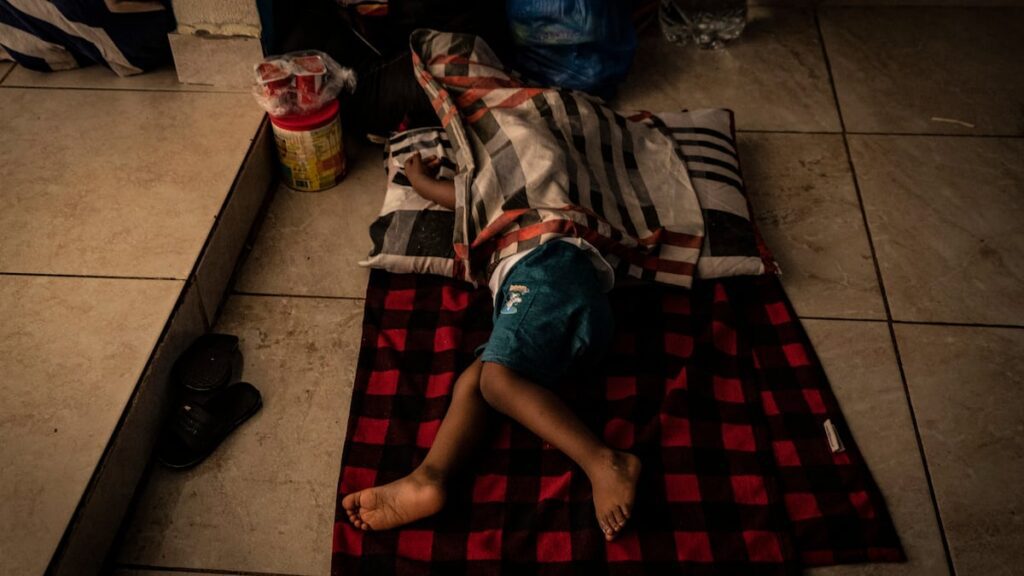
Kids who migration left behind: The challenging rescue of children who have been victims of violence in Mexico | International
Tiempo de Lectura: 9 Minutos
What’s your Reaction?
0%
Love
0%
Smile
0%
Haha
0%
Sad
0%
Star
0%
Weary
Shares:


